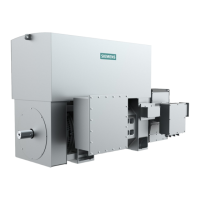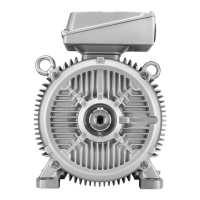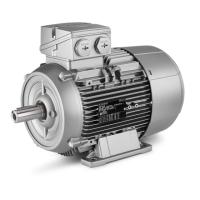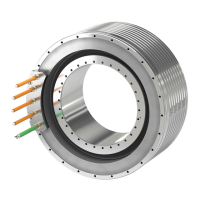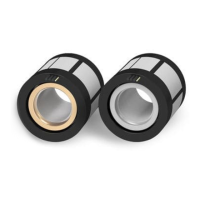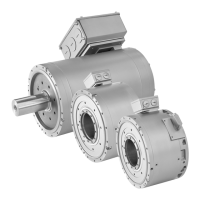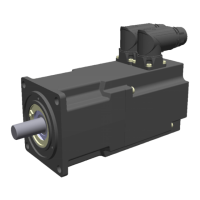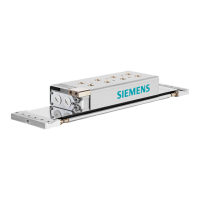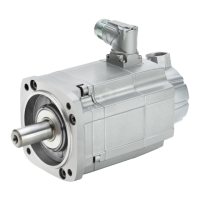↓ Motor fails to start
↓ Motor accelerates sluggishly
↓ Rumbling noise during startup
↓ Rumbling noise during operation
↓ High temperature rise during no-load operation
↓ High temperature rise with load
↓ High temperature rise of individual winding sections
Possible causes of faults Remedial measures
X X X X Winding short circuit or phase short cir‐
cuit in stator winding
Determine the winding resistances and insulation
resistances. Carry out repair work after consulta‐
tion with the manufacturer.
X Incorrect direction of rotation Check the connection.
8.9.3 Mechanical faults
Table 8-2 Mechanical faults
↓ Grinding noise
↓ Radial vibrations
↓ Axial vibrations
Possible causes of faults Remedial measures
X Rotating parts grind Establish the cause and realign the parts.
X Stator or coupling not balanced. Disconnect the stator or coupling and rebalance.
If the machine has two shaft ends, and a transmission element is
only fitted to one end, secure the fitted key at the other end to prevent
it from being thrown out. If the rotor has balance type "H" (standard
type), the fitted key must be cut back to roughly half of its length.
X Rotor out of true, shaft bent Consult the manufacturing plant.
X X Poor alignment Align the machine set; check the coupling.
(1)
X Coupled machine not balanced Rebalance the coupled machine.
X Shocks from coupled machine Investigate the coupled machine.
X X Uneven running of gear unit Fix the gearing.
X X Resonance of the overall system com‐
prising motor and foundation
Stabilize the foundation following consultation.
X X Changes in foundation Establish the cause of the changes and eliminate them if necessary;
realign the machine.
(1)
Take any changes into account when warming up the machine.
Operation
8.9 Faults
SIMOTICS HV C 1NA14544WA600AG0-Z
Operating Instructions 06/2018 71

